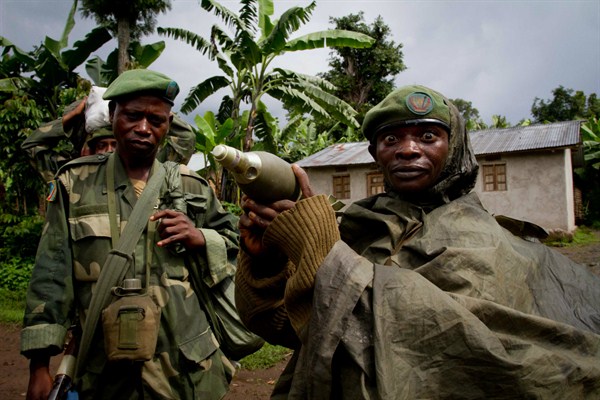Human rights organizations have become alarmed that, according to documents leaked to Reuters, U.S. President Donald Trump is expected to sign an executive order suspending Section 1502 of the Dodd-Frank financial reforms. The rule requires companies to disclose whether their products contain the so-called 3TG conflict minerals—gold, tungsten, tantalum and tin—seen as critical drivers of the ongoing conflict in the Democratic Republic of Congo.
Advocates of the rule, which went into effect in 2014, contend that conflict minerals, which the U.N. has called the “engine of the conflict” in Congo, provide hundreds of millions of dollars to armed groups, which continue to wreak havoc in the east of the country. When it was introduced in 2010, businesses and corporate lobbyists decried the measure, arguing that it would require companies to implement costly monitoring tools that were difficult to enforce. Major companies from Intel to Tiffany’s have undertaken efforts to comply.
Republicans have opposed the ban for years. Although a full repeal would require a new law to be passed by Congress, some of the requirements could easily be scaled back, or the U.S. Securities and Exchange Commission (SEC) could simply stop enforcing the rule.

